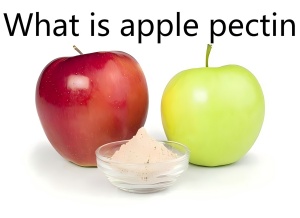What is apple pectin

Apple pectin is a natural type of soluble fiber found in the cell walls and skins of apples. Known for its thickening and gelling properties, apple pectin is widely used in food production, supplements, and health applications. But beyond its industrial uses, apple pectin offers a wide range of health benefits, especially for gut health, cholesterol control, and digestion. This guide will explore everything you need to know about apple pectin—from what it is and how it works, to how it’s used and why it matters.
What Exactly Is Apple Pectin?
Apple pectin is a complex carbohydrate, specifically a polysaccharide, that occurs naturally in apples. It is a type of soluble fiber, meaning it dissolves in water to form a gel-like substance. This property is what makes it such a useful thickening agent in jellies, jams, and marmalades.
Pectin is mostly found in the skin and core of the apple, and its concentration varies depending on the variety and ripeness of the fruit. During the ripening process, the pectin in apples breaks down, which is why overripe apples feel softer.
How Is Apple Pectin Made?
Step 1: Sourcing Raw Materials
Apple pectin is extracted primarily from apple pomace, which is the leftover pulp, skins, and cores from juice or cider production.
Step 2: Extraction Process
The pomace is washed and treated with hot water or a mild acid to release the pectin. This process is carefully controlled to maintain the structure and quality of the pectin.
Step 3: Filtration and Concentration
The liquid containing the pectin is filtered and then concentrated to remove excess water.
Step 4: Drying and Milling
Finally, the concentrated pectin is dried and ground into a fine powder, ready to be used in food or dietary supplements.
Key Health Benefits of Apple Pectin
1. Supports Digestive Health
Apple pectin acts as a prebiotic, feeding beneficial gut bacteria and promoting a balanced microbiome. It also helps regulate bowel movements and may reduce symptoms of constipation or diarrhea.
2. Helps Lower Cholesterol
Several studies have shown that apple pectin can bind to bile acids in the intestine, which helps reduce cholesterol levels in the blood over time.
3. May Regulate Blood Sugar
As a soluble fiber, pectin slows down the absorption of glucose, which can help maintain stable blood sugar levels after meals.
4. Supports Weight Management
Because it expands and forms a gel in the stomach, apple pectin may help increase satiety and reduce overall calorie intake.
Common Uses of Apple Pectin
1. Food Industry
In foods, apple pectin is most commonly used as a gelling agent in jams, jellies, fruit spreads, and yogurt. It improves texture, stability, and shelf life.
2. Dietary Supplements
Apple pectin is sold in powder or capsule form as a natural fiber supplement. It's often used to support digestive health or detox programs.
3. Pharmaceuticals and Cosmetics
In drug formulations, pectin is used to control the release of active ingredients. In skincare, it’s included in creams and lotions for its thickening and moisture-retention properties.
Is Apple Pectin Safe?
Apple pectin is considered safe for most people when consumed in normal food or supplement amounts. However, taking large doses without adequate hydration could lead to bloating or mild digestive discomfort. As always, it's best to consult a healthcare provider before starting any new supplement, especially if you have underlying health conditions or are taking medication.
Where Can You Find Apple Pectin?
You can find apple pectin in health food stores, online supplement retailers, or as an ingredient in natural fiber blends. It may also be listed on food labels as E440, the European code for pectin.
Conclusion
Apple pectin is more than just a food thickener—it’s a versatile, natural fiber with a wide range of health benefits. From improving digestion to lowering cholesterol, apple pectin supports your body in subtle but important ways. Whether you're adding more fiber to your diet or looking for a natural ingredient for recipes, apple pectin is worth exploring.
